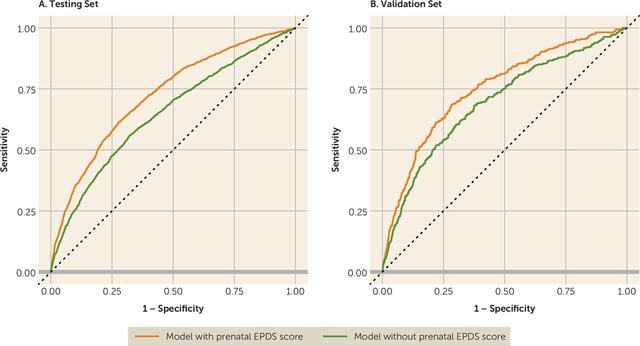Overview
- A machine learning model predicts postpartum depression (PPD) risk with 30% sensitivity and 90% specificity using data available before hospital discharge.
- Approximately 9% of individuals in the study cohort experienced PPD within six months of delivery, highlighting the condition's prevalence.
- A Swedish registry study found women are over 10 times more likely to develop postpartum psychosis if their sister had the condition, with a 14-fold increase in risk when combined with sibling bipolar disorder.
- Despite high familial relative risks, the absolute population risk for postpartum psychosis remains low at approximately 1.6%.
- Researchers are conducting prospective validation of the PPD model and exploring clinical integration to enhance maternal mental health care.

